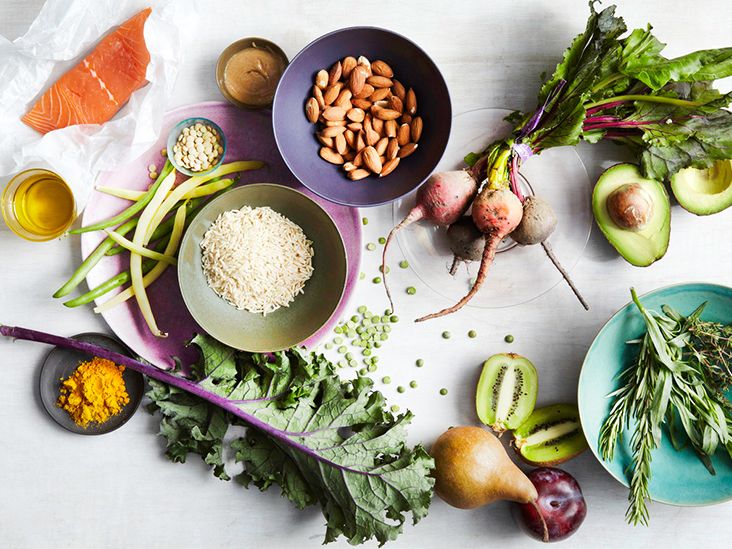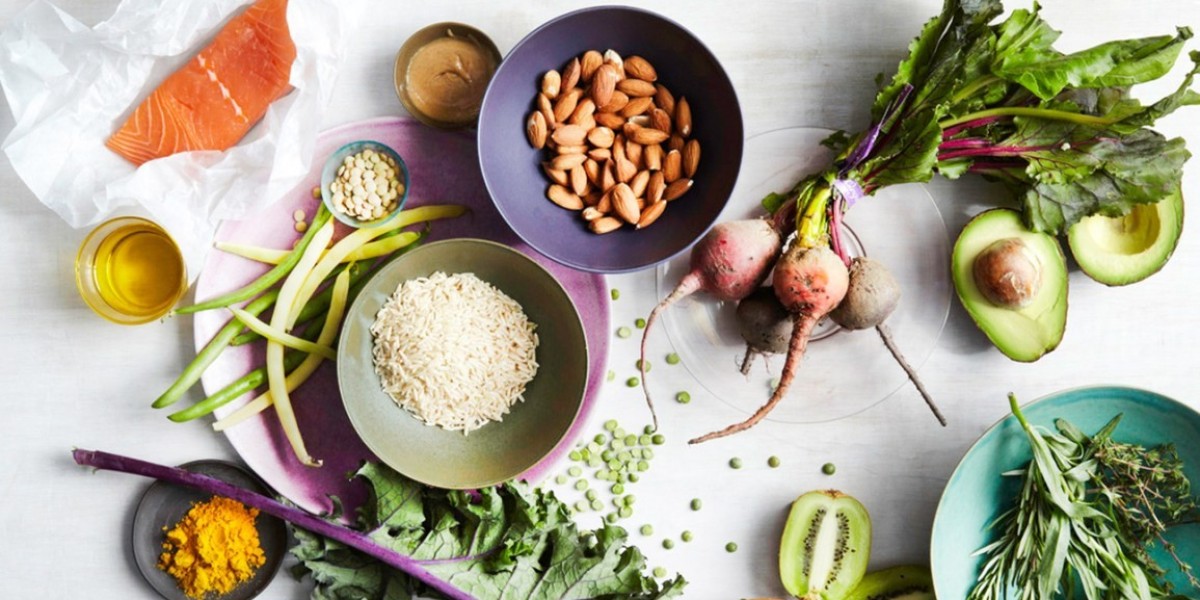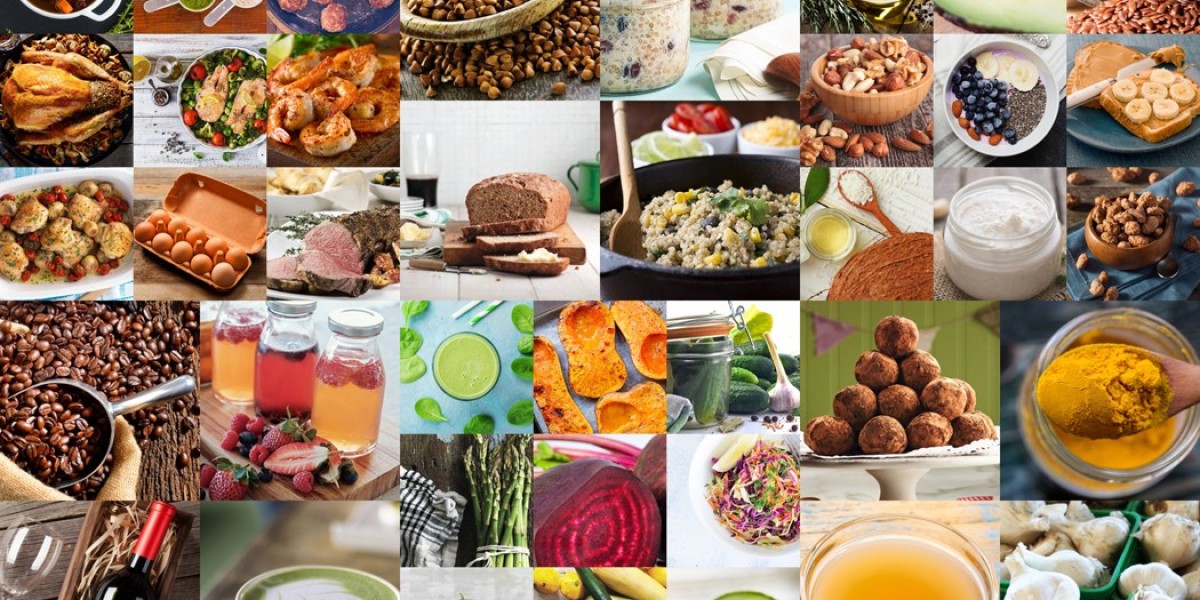A list of 50 super healthy foods includes fruits, vegetables, lean proteins, whole grains, and nuts. These essential items promote well-being, energy, and longevity.
Eating right is pivotal to healthful living, which is why superfoods have taken centre stage in the nutritional world. Brimming with vitamins, minerals, and antioxidants, these foods offer an abundance of health benefits that can bolster the immune system, enhance heart health, and prevent chronic illnesses.
The vast world of nutritious edibles encompasses a diverse array of choices, coveting individuals with unique tastes and dietary preferences. Simple, wholesome, and bursting with flavour, the options are limitless. Including a variety of these power-packed foods in your diet can lead to a more vibrant and healthier life. By recognizing the significance of these foods, you can make informed choices that contribute significantly to your overall well-being. Each brings its own set of potent benefits, encouraging a balanced approach to eating and living.

Credit: www.healthline.com
50 Super Healthy Foods
Embark on a journey towards optimal health with our comprehensive guide to 50 super healthy foods. Discover the ultimate nutrition powerhouses, from leafy greens to omega-rich seeds, essential for vibrant health and well-being.
Embracing a diet rich in nutritious foods is essential for maintaining good health and vitality. With a diverse selection of options available, from leafy greens to protein-packed legumes, there’s something to enhance every meal with a boost of natural goodness.
This list has been carefully curated to include a variety of wholesome choices that cater to wide-ranging dietary preferences and needs.
Super Seeds
Seeds might be tiny, but their nutritional profile is immense. Integrating these into your diet can offer a multitude of health benefits:
- Chia Seeds: Packed with omega-3 fatty acids, fiber, and protein.
- Flaxseeds: Rich in antioxidants and fiber, they also contribute to heart health.
- Pumpkin Seeds: A good source of magnesium, zinc, and fatty acids.
Leafy Greens
Leafy greens are powerhouse vegetables that provide an abundance of nutrients with minimal calories. They should be a staple in everyone’s diet due to their versatility and health benefits. Kale, spinach, and Swiss chard are among the most nutrient-dense, offering high levels of vitamins A, C, K, iron, and calcium.
Berries
A rainbow of berries offers more than just a feast for the eyes:
- Blueberries: Celebrated for their high antioxidant content and memory-boosting ability.
- Strawberries: Provide vitamin C, manganese, and various antioxidants.
- Raspberries: Fiber-rich and loaded with vitamins, minerals, and antioxidants.
Nuts
Nuts are not only a crunchy and satisfying snack but also a wise nutritional choice. Eaten in moderation, they can provide essential fats, proteins, vitamins, and minerals. Almonds, for example, are a fantastic source of vitamin E and magnesium, whereas walnuts offer a significant amount of alpha-linolenic acid, a type of plant-based omega-3 fatty acid.
Whole Grains
Whole grains carry an impressive nutritional profile. They are a source of complex carbohydrates, fiber, vitamins, and minerals that contribute to heart health and aid in digestion. Quinoa, oats, and brown rice are great choices, offering protein and fiber, which help in feeling full and managing weight.
Legumes
Legumes are not only affordable and versatile but also rich in protein, making them an excellent meat substitute for vegetarians and vegans:
- Lentils: Contain B vitamins, magnesium, zinc, and potassium.
- Chickpeas: High in fiber and protein, they support digestive health.
- Black beans: Great for blood sugar management and heart health due to their fiber content.
Fatty Fish
When it comes to fish, fattier species often come packed with omega-3 fatty acids, which are crucial for heart and brain health. Salmon, mackerel, and sardines are stars in this category, not forgetting their contribution as protein-rich foods with anti-inflammatory properties.
Cruciferous Vegetables
Cruciferous vegetables like broccoli, cauliflower, and Brussels sprouts are rich in fiber and vitamins. They contain compounds that may help prevent cancer and are also beneficial for weight control due to their low-calorie content and high nutrient density.
Lean Meats
Lean meats are an excellent source of high-quality protein that support muscle building and repair. Poultry like chicken or turkey breasts without the skin contain fewer fats compared to red meats. Make sure to choose grass-fed or organic meats whenever possible to avoid added hormones and antibiotics.
Dairy Alternatives
For those who are dairy intolerant or choose to avoid animal products, there are plenty of nutritious alternatives:
- Almond milk: Low in calories and enriched with vitamin D.
- Soy milk: A good protein source and often fortified with vitamins A, B12, and D.
- Coconut yogurt: Offers healthy fats and is a tasty dairy-free option.
This list showcases just a fraction of the wholesome foods available that can contribute to a balanced and healthy diet. Incorporating these items into your meals will not only elevate the nutritional value but also enhance the overall enjoyment of your food.
Remember, a colorful plate is often a sign of a nutrient-packed meal, so don’t hesitate to experiment with these super healthy foods for a vibrant and nutritious diet.

Credit: www.healthline.com
Frequently Asked Questions Of A List Of 50 Super Healthy Foods
What Are The Top 50 Healthiest Foods In The World?
Discover the top 50 healthiest foods: Blueberries, spinach, kale, almonds, avocados, sweet potatoes, oatmeal, green tea, broccoli, apples, quinoa, lentils, garlic, salmon, chia seeds, walnuts, chicken breast, olive oil, flaxseeds, and yogurt lead the list.
What Are The Top 20 Super Foods?
The top 20 superfoods include kale, blueberries, quinoa, spinach, almonds, avocado, chia seeds, sweet potatoes, broccoli, salmon, garlic, oats, green tea, turmeric, walnuts, ginger, beets, apples, dark chocolate, and flaxseeds.
What Is The Number 1 Healthiest Food In The World?
Identifying the single healthiest food is subjective; however, blueberries are often hailed as one of the healthiest foods due to their high antioxidant content.
Is There A List Of Superfoods?
Yes, there’s a list of superfoods; it typically includes berries, leafy greens, nuts, seeds, avocado, and ancient grains. Each superfood is known for its high nutrient density and health benefits.
What Are The Top Superfoods For Energy?
Superfoods like bananas, oats, and spinach offer sustained energy due to their nutritious content of vitamins, minerals, and complex carbohydrates.
How Do Superfoods Benefit Weight Loss?
Many superfoods, such as avocados, nuts, and berries, are high in fiber and protein, helping to promote satiety and reduce overall calorie intake.
Can Superfoods Improve Skin Health?
Yes, superfoods like tomatoes, dark chocolate, and sweet potatoes contain antioxidants and vitamins that can enhance skin health and protect against damage.
What Superfoods Support Brain Function?
Foods like walnuts, blueberries, and salmon are rich in omega-3 fatty acids and antioxidants, which contribute to improved cognitive function and brain health.
Are There Superfoods That Boost Immunity?
Absolutely, superfoods like citrus fruits, garlic, and ginger contain compounds that strengthen the immune system and fight against infections.
Which Superfoods Are High In Antioxidants?
Berries, dark leafy greens, and beans are packed with antioxidants that help in neutralizing harmful free radicals in the body.
Conclusion
Navigating the vast sea of dietary choices just got easier. Our comprehensive list highlights 50 foods brimming with health benefits. Each item promises to enrich your meals with essential nutrients and delightful tastes. So, embark on a journey to rejuvenate your diet.
Your body and taste buds will thank you!






